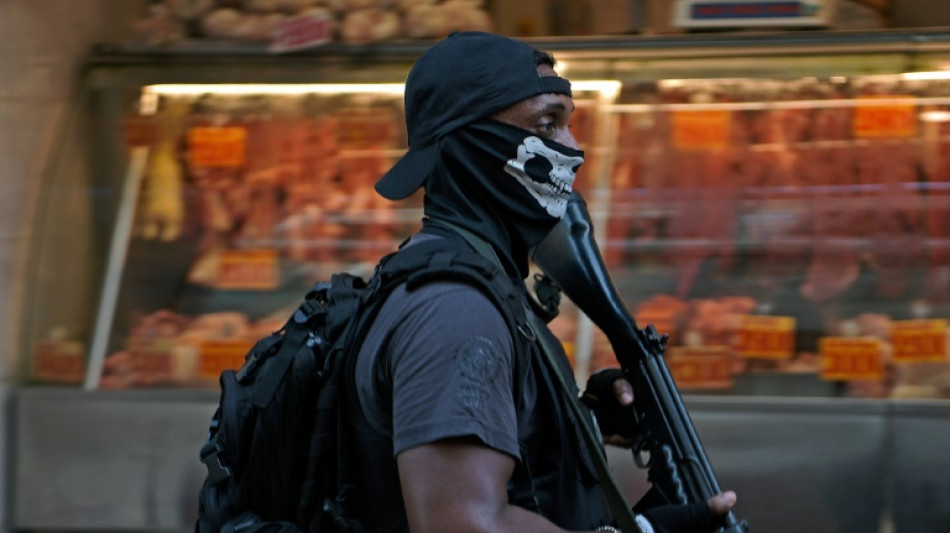

Police deploy in Rio to retake gang-controlled favelas
Some 1,200 heavily armed military police launched an operation Wednesday to wrench control of Rio de Janeiro's slums from drug gangs, starting with the notorious Jacarezinho favela where residents took cover.
Jacarezinho was the scene last May of reportedly the deadliest police operation in Rio's history. It left 28 people dead, prompting the UN to call for an "impartial" investigation into claims of summary executions.
The shantytown of some 90,000 inhabitants, according to community leaders, is considered a stronghold of the Comando Vermelho (Red Commando) criminal group.
"The (Rio) state government began a territorial recovery in the Jacarezinho community. Surrounding communities will also be occupied," the military police said on Twitter, with photos of black-clad officers patrolling the streets.
According to AFP journalists on the ground, the streets of Jacarezinho were all but deserted, with shop shutters lowered as police patrolled with assault rifles amid palpable tension.
Residents declined to be interviewed on the operation.
Military police spokesman Ivan Blaz said the situation was calm, with no reports of shoot-outs.
- 'Integrated city' -
The operation is part of a government program -- Integrated City -- aimed at transforming Rio communities at the mercy of criminal gangs and drug-traffickers, Governor Claudio Castro said on Twitter.
"It took months to design a program that would change the lives of the people, giving them dignity and opportunity. The operations are just the beginning of this transformation that goes far beyond security," said Castro.
Added Blaz: "This is an intervention in a conflict zone so that we can implement a project of the Rio state government. Security is the first step.
"It is the next steps that will make the difference: the arrival of social, health and education services, job creation", he told AFP.
Similar operations will be conducted in other neighborhoods in the coming months in Rio city, where about a quarter of the population of 6.7 million live in crime- and poverty-ridden favelas.
Security and violence experts have questioned the efficacy of the anti-gang operations, as well as the large number of deaths that often occur.
Inhabitants fall victim both to clashes between gangs and the police, and between gangs themselves.
- 'Occupation without dialogue' -
The timing of the latest deployment, in an election year, has come in for criticism.
"Clinics are closed, vaccination and anti-Covid tests are suspended in Jacarezinho where this military occupation is taking place at a critical time of the pandemic," tweeted Renata Souza, a leftist state legislator.
"This logic of occupying a territory militarily to integrate it is wrong! It totally violates the rights of the inhabitants!" she added.
For its part, the Network of Public Security Observatories, a grouping of universities and NGOs, slammed "a military occupation without dialogue with the inhabitants."
May's raid sparked outraged protests after streets in the favela were left strewn with bodies and pools of blood.
Police had said the operation targeted a drug gang that was recruiting children and teenagers.
Rights groups claimed it was the most deadly police operation in the history of a city all-too-used to violence and police killings -- particularly in the majority-black favelas.
Two police officers have been prosecuted for murder.
Far-right President Jair Bolsonaro, who was elected on a promise to be tough on crime, has expressed support for the two officers.
Y.Mata--LGdM




